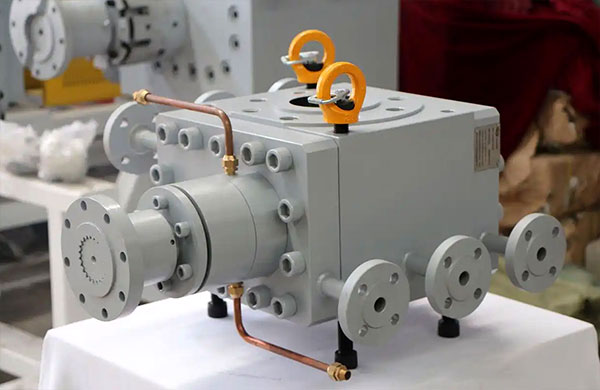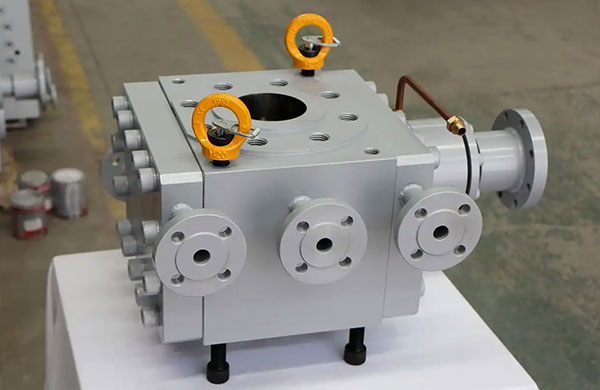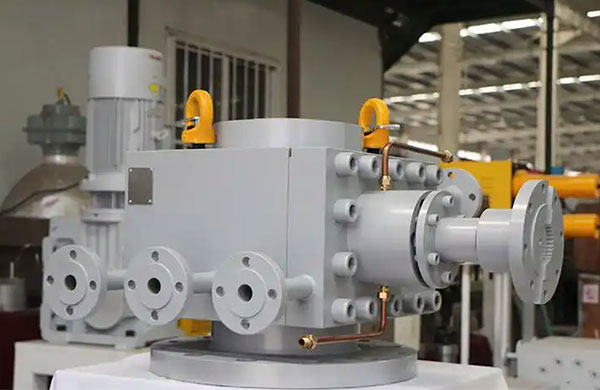Polymer Melt Gear Pump
A melt gear pump is a device that achieves forced material conveyance through gear meshing. It transports melt by utilizing the changing working volume formed by two meshing gears, specifically designed for the stable conveyance and pressure boosting of high-temperature, high-viscosity melts (such as polymer melts, chemical fiber raw materials, etc.). Its operational process can be systematically divided into three key stages: suction, pressurized conveyance, and stable discharge. Each stage embodies precision engineering design and fluid control principles.

I. Detailed Explanation of Melt Gear Pump Operation
(1) Melt Suction Process
At the pump inlet, a pair of precision-machined gears rotate synchronously in opposite directions. When the gear teeth disengage, they form a gradually expanding sealed space with the pump chamber wall, creating a localized vacuum (negative pressure) similar to the suction action of a syringe. Driven by pressure differentials, high-viscosity melt is continuously drawn into the gear cavities. The involute tooth profile design of Bart's gear pumps ensures excellent suction sealing, effectively preventing melt backflow while enabling vacuum feeding.

(2) Pressure Build-Up Process
As the gears continue rotating, the cavities filled with melt progressively move from the inlet toward the outlet. During this movement, the meshing action of the gears causes the tooth cavity volume to linearly decrease, uniformly compressing the melt. This progressive volumetric compression enables a stable increase in melt pressure. Leveraging precision manufacturing and wear-resistant materials, Bart Melt Gear Pumps can withstand maximum output pressures up to 35 MPa with smooth pressure buildup, making them particularly suitable for shear-sensitive polymer materials.
(3) Stable Output Process
Within the discharge zone, continuous gear meshing ensures the melt is expelled from the pump chamber at constant pressure. Due to the strict linear relationship between gear speed and displacement (fixed displacement per revolution), melt flow rate depends solely on rotational speed. This characteristic offers dual advantages: precise flow metering and stable output pressure. This “fixed displacement” feature effectively eliminates flow pulsation common in conventional centrifugal pumps, providing ideal delivery conditions for subsequent processes like extrusion and injection molding.

II. Technical Advantages of Melt Gear Pumps
Operating on a positive displacement principle, melt gear pumps offer significant advantages over traditional screw or centrifugal pumps, including minimal pressure and flow pulsation, high volumetric efficiency, and strong adaptability to viscosity variations. Building upon this foundation, Bart Melt Gear Pumps enhance reliability and service life in demanding conditions through optimized structural design, diverse material options (e.g., stainless steel, corrosion-resistant alloys), and flexible configurations like thermal fluid/electric heating. This makes them essential equipment for achieving precise material transfer in polymer production.
Email: sale@meltpump.com
WhatsApp: +86 158 3833 1071